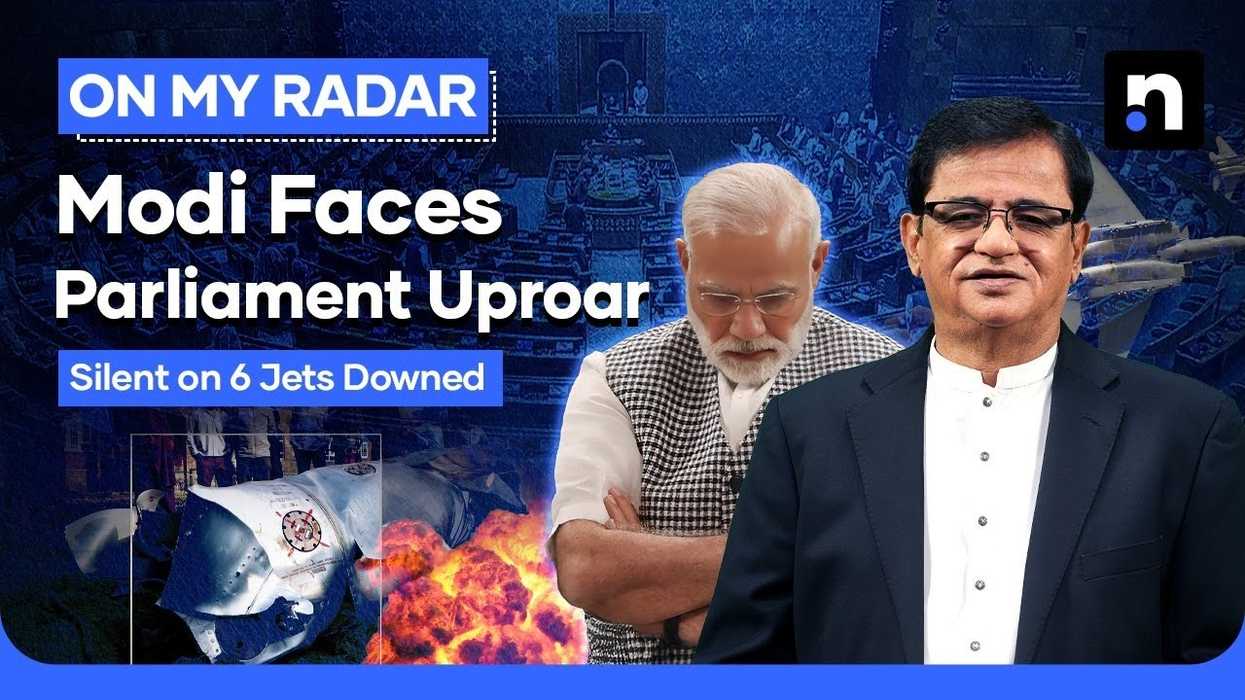India grapples with internal crisis following defeat to Pakistan
From the Pahalgam attack to the loss of six IAF jets, critics are grilling the Indian government over what they call major security failures
News Desk
The News Desk provides timely and factual coverage of national and international events, with an emphasis on accuracy and clarity.
India’s political landscape is in turmoil as questions mount over the government’s handling of the recent conflict with Pakistan. In the aftermath of the war, Prime Minister Narendra Modi’s administration is facing mounting pressure -- not only over the military outcome, but also for its delayed and evasive response.
Parliament has finally reconvened after a nearly three-month hiatus, and the opposition is making full use of the platform. From the Pahalgam attack to the downing of six Indian Air Force jets, the government is being grilled over what critics are calling a series of grave failures.
In the latest episode of On My Radar, Kamran Khan noted that the Modi government appears paralyzed in the face of both political and military fallout.
Faced with growing pressure, Indian military leaders began acknowledging their defeat in public statements. These repeated admissions eventually forced Prime Minister Modi to break his silence. Yet, even now, he has refused to directly address the loss of six Indian Air Force jets, including advanced Rafales.
When asked whether India had requested U.S. intervention for a ceasefire, Modi initially denied the claim, asserting that no world leader had pressured India to stop military operations. However, within moments, he contradicted himself, admitting that U.S. Vice President JD Vance had called on May 9 to warn of an imminent large-scale Pakistani strike.
That contradiction didn’t go unnoticed. Less than 24 hours later, U.S. President Donald Trump once again reaffirmed that it was his diplomatic effort that led to the India-Pakistan ceasefire, marking the 29th time he’s made this claim.
Pakistan’s Deputy Prime Minister and Foreign Minister Ishaq Dar also confirmed in a U.S. interview that America’s Secretary of State Marco Rubio had informed Pakistan of India’s request for a ceasefire.
Rahul echoes Trump’s peace claim
Not only have Trump and Dar confirmed this, but Indian opposition leader Rahul Gandhi has also publicly acknowledged America’s role in brokering peace. This raises an important question -- if Modi disagrees, why hasn’t he directly challenged Trump or labeled his claim as false?
While history will ultimately judge the outcome of the war, what’s already clear is that India’s top military officials themselves have conceded defeat -- repeatedly and on the record.
- YouTube www.youtube.com
Even Modi’s silence on the downed jets has been challenged in parliament. Rahul Gandhi declared that had the government followed his advice, India might have saved five of its six fighter aircraft.
To shift the narrative, India has now launched a new military campaign, calling it “Operation Mahadev” -- framing it as a response to Pakistan’s nuclear deterrence. But analysts suggest this is more about damage control than deterrence. They point out that Pakistan showed significant restraint, choosing not to fully activate its full-spectrum deterrence strategy.
Meanwhile, India’s international standing has taken a hit. Modi’s claims that the entire world supported India don’t quite hold up. From the G7 to BRICS, the Quad to the SCO, India struggled to gain any significant diplomatic backing. Even Switzerland, a country known for its neutrality, dismissed India’s narrative.
Diplomatic defeat mirrors battlefield loss
Modi insists that three countries stood with India -- but none of them included the U.S., China, or any major EU power. Even traditional economic allies like Saudi Arabia and Iran threw their support behind Pakistan.
Indian opposition leader Rahul Gandhi put it bluntly: the world stood with Pakistan, and India’s foreign policy was left isolated.
This diplomatic isolation, coupled with a failed military strategy and hollow accusations of cross-border terrorism, has only weakened India’s position further.
As for Modi and the BJP’s repeated attempts to shift the conversation -- critics say they won’t erase the reality of a 6-0 loss, both on the battlefield and in the diplomatic arena.








Comments
See what people are discussing